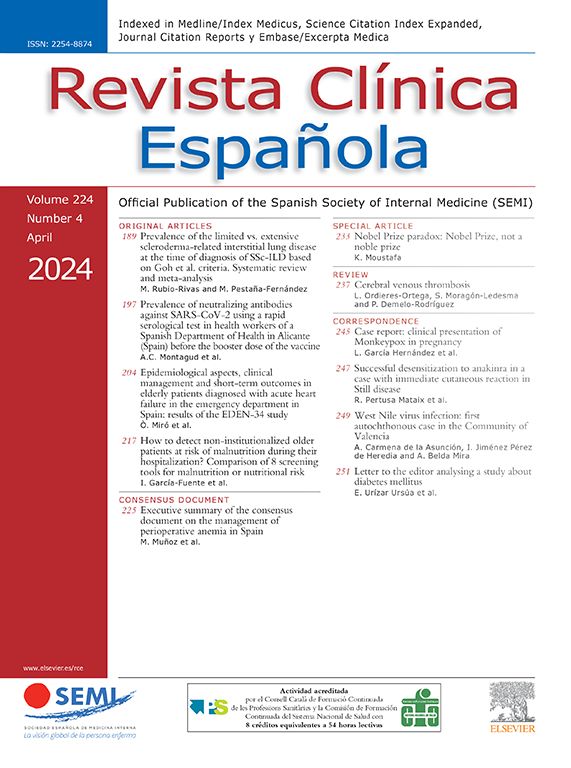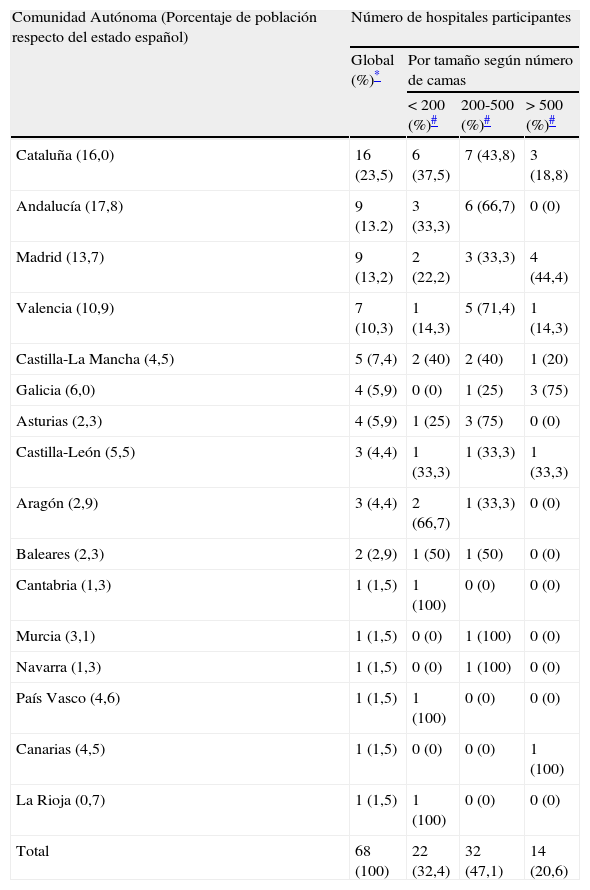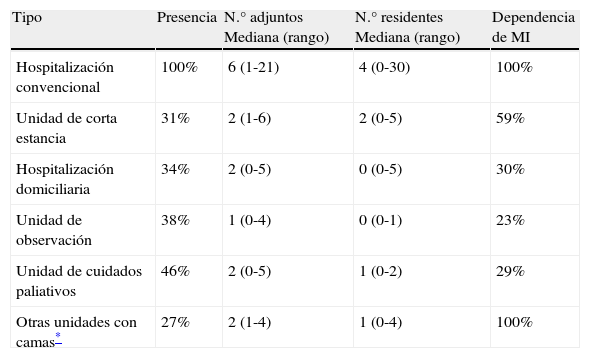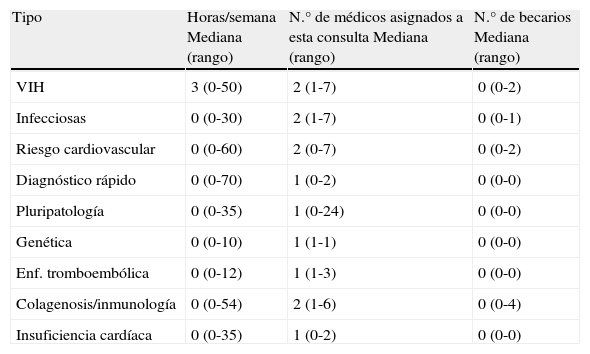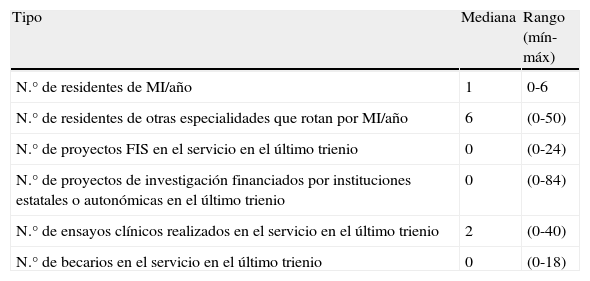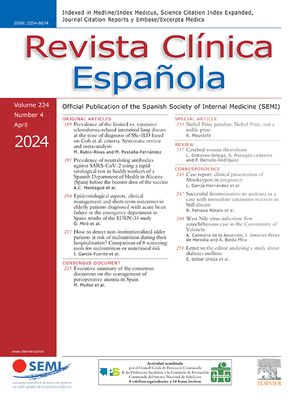Conocer la organización de los servicios de medicina interna (SMI) y la opinión de sus jefes.
Material y métodosEn 2008 se envió una encuesta a 410 jefes de SMI de 313 hospitales públicos de España. Incluía un formulario de preguntas estructuradas sobre plantilla, actividad de hospitalización, consulta, interconsultas, investigación y docencia. Además se pedía opinión y sugerencias sobre gestión, proyectos y futuro.
ResultadosSe cumplimentaron 68 encuestas (22%). De media un internista hace 3 guardias mensuales y anualmente 200 altas, 500 consultas y 40 interconsultas. El SMI está constituido por 10 internistas y tiene asignadas 1/5 de las camas del hospital. Un tercio de los hospitales tiene alternativas de hospitalización; la más frecuente, cuidados paliativos. La consulta monográfica más habitual es enfermedades infecciosas, 1/3 no tiene estructurada su relación con Atención Primaria y urgencias no depende del SMI. La mitad tiene al menos un residente de MI, 6 de otras especialidades, realiza al menos dos ensayos clínicos y 1/3 participa en formación médica pregraduada. Se detectan problemas de relación con directivos, otras especialidades y población. La excesiva presión asistencial, el envejecimiento y la desmotivación de la plantilla y los problemas sociales tienen efectos negativos. Aún así se desea poner en marcha algún proyecto, existe optimismo respecto al futuro e interés por investigar en epidemiología clínica.
ConclusionesAunque la muestra es pequeña y heterogénea, el estudio permite conocer la estructura y funcionamiento estándar de un SMI en España, así como sus expectativas de futuro y principales áreas de mejora.
To know the organization of internal medicine departments (IMD) and the opinion of their heads of department.
MethodsIn 2008, a survey was mailed to 410 heads of department of the IMD of 313 Spanish public hospitals. It included a standardized structured questionnaire on staff, hospitalization, outpatients, consultation, research and teaching. The heads of departments were also asked for their opinion and suggestions on management, projects and future. Results: Sixty-eight surveys (22%) were filled out. Internists are on call an average of 3 times a month and perform 200 discharges, 500 outpatient visits and 40 consultations in a year. The average IMD consists of 10 internists with one-fifth of the hospital beds. One third of hospitals have alternatives to inpatient care, the most frequent being palliative care. Infectious diseases accounts for the most common monographic outpatient visit, one-third of IMD lack a structured relationship with primary care and the emergency department is independent of IMD. Half of the IMD have at least one IM resident and 6 residents in other specialties; half are involved in at least two clinical trials and one-third train medical students. The heads of the IMD identify problems in their relationship with hospital managers, other specialties and local population. Excessive workload, aging and discouragement of staff and patients’ social problems have negative effects. Even so, they want to initiate projects, are optimistic about the future and take an interest in clinical epidemiology research.
ConclusionsAlthough the sample is small and heterogeneous, it permits a valuable panoramic view of the structure and standard operation of a Spanish IMD as well as their expectations and areas of improvement.
Article
Diríjase desde aquí a la web de la >>>FESEMI<<< e inicie sesión mediante el formulario que se encuentra en la barra superior, pulsando sobre el candado.

Una vez autentificado, en la misma web de FESEMI, en el menú superior, elija la opción deseada.

>>>FESEMI<<<

